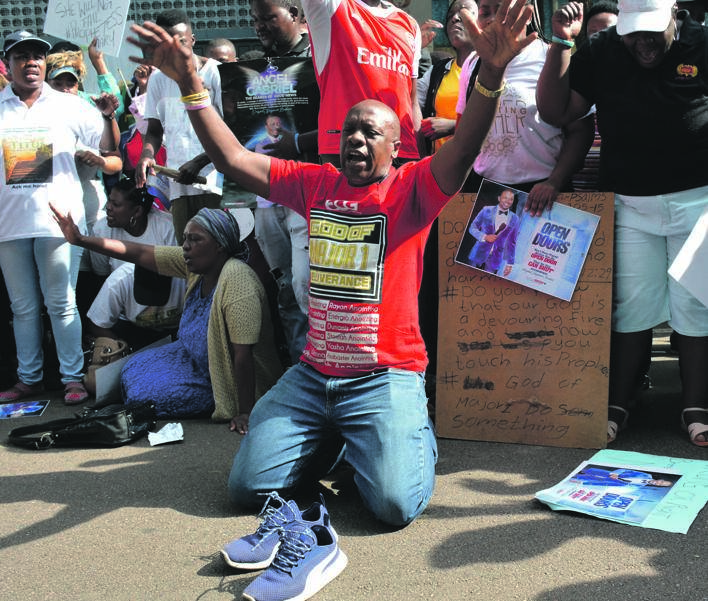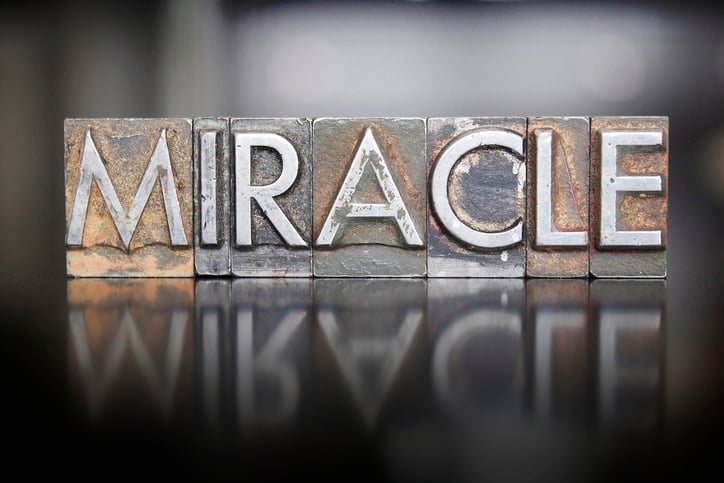
Soon after airing on SABC3’s Cutting Edge on March 13 2019, the programme on miracles in Pentecostal charismatic churches started trending on social media. This form of Christianity has been receiving attention as reports of people eating snakes, drinking petrol, being sprayed with Doom and rising from the dead have made the headlines.
In the 1990s and 2000s the main focus of these churches was a prosperity gospel that promised health and wealth – miracle healings – to those who believed in the power of God to heal, and hundreds of people claimed that by being part of these churches they were able to find work and excel in their chosen careers.
People ask me one of four questions when they hear that I do research on Pentecostal charismatic churches. Why do people believe this? Are these people stupid? When will these people see the light – they are just being fooled? How can church leaders be so abusive? These questions generally lead to conversation in which people ask me if this is a uniquely South African phenomenon because we are somehow more gullible than others.
We need to see these miracle churches and men of God in the context of contemporary South Africa, that is, the fourth industrial revolution. We are living through tremendous changes in technology, and knowledge production and consumption, which are disrupting the world as we knew it.
Looking at history, we see that big socioeconomic and technological shifts often spark reactions from religious communities. The 15th century in Europe is a good example – the Renaissance saw one of the most profound developments in knowledge production and, later, knowledge consumption through the invention of the printing press. This was also a time in which the Catholic Church was selling a particular brand of heavenly prosperity theology; it sold believers indulgences. If the believer gave the church money, they would be issued with a certificate that their sins had been forgiven and they would be assured of a place in heaven, rather than going to hell or languishing in purgatory. Famously, Martin Luther pinned his 95 theses to the door of a church in Wittenberg in 1517 to protest the sale of indulgences as abusive of people and the meaning of the Gospel.
During the 17th century, society witnessed the highest number of witch killings, as hundreds of women were sent to their deaths for being witches. A century later, the Industrial Revolution began. In both instances, European society underwent seismic shifts in knowledge production and distribution, and developments in technology. A key feature of both these eras was that people felt left out, that the world had become a dangerous place and powers of evil were driving the changes they struggled to understand. They felt that there was something going on out there that was changing their world, over which they had no control, which they did not understand and which they feared and even believed was negatively affecting their world.
Read: ‘Religious spaces have become a crisis instead of places of hope’
We are seeing a similar phenomenon in South Africa. The fourth industrial revolution has become a buzz word. Many people are talking about blockchain, artificial intelligence, deep learning and virtual reality. But few actually know what these things really are, even fewer understand what they do and only a minority understand how they work. We, the common South African, are living in a world that is changing, but we don’t understand these changes. The fact that Pinterest knows what I want is cool but also a bit unnerving. When it enhances my life I am happy but when it doesn’t do what I want it to do I realise that I have little agency to control what the machines in my life do. An underlying tension is the feeling that machines are taking away our jobs and might even take over the world.
The revolution is taking place in a country that is failing economically, where 52% of young people are unemployed – for many of them it feels like only a miracle will enable them to find a job.
What the miracle churches offer is twofold. On the one hand they offer a perception that makes sense of the widening gap between wealth and poverty. They explain to believers that the world is held in a spiritual battle between good and evil. If bad things are happening to you, you need to expel the evil from your life. The people who are wealthy are not those with access to education or an understanding of artificial intelligence but those who have enough faith to drive the devil out of their lives. People are poor because Satan has a hold on their lives.
Once the bonds of witchcraft are broken and evil destroyed then they will be able to embrace all the blessings of wealth and health that God has ordained for them. In peri-urban informal settlements, where most people are unemployed, it makes sense to eat rat poison or be sprayed with Doom in order to drive out the evil in your life that is holding you back from finding a job.
This leads to the second powerful and compelling part of this perception – each individual has the agency, through prayer, to change their lives. If your prayers fail then it makes sense to ask those who seem successful and who appear to have particular spiritual powers to pray for you and drive out the evil.
These churches offer an explanation for why some people have and others do not. They offer a form of agency in a world where people feel they have no voice or authority. Instead of saying that the “magical” force driving the world is technology, over which they feel they have little or no control, they direct their congregants to the “magical” spiritual world which they can access through dedicated prayers and have some form of agency over.
The revolution is bringing with it many advances and exciting new possibilities but, as with all revolutions, it is disruptive and, in a time of uncertainty, miracles and faith offer agency, hope and reassurance.
- Frahm-Arp is associate professor of religious studies at the University of Johannesburg and works as executive director of the library
Would you seek comfort in religion during a disruptive era?
SMS us on 35697 using the keyword REVOLUTION and tell us what you think. Please include your name and province. SMSes cost R1.50. By participating, you agree to receive occasional marketing material




 Publications
Publications
 Partners
Partners










